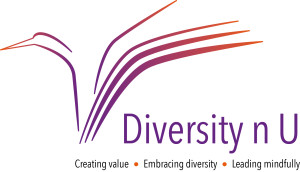Creating Value – Embracing Diversity – Leading Mindfully
Context and current situation :
Although in the EU women make up nearly half the workforce and more than half of new university graduates, they are still under-represented in top leadership positions. And this not only applies to women: minorities are also hardly represented at top management levels, although demographics indicate that a diverse workforce is definitely needed in order to maintain current living standards and sustainable growth.
Change is already on its way :
One of the founding principles of the European Union is the equality of women and men. According to a Europe 2020 initiative, policy options for targeted measures to enhance female participation in decision-making at the European level will be implemented, forty percent of top leadership positions are to be held by women. In a number of European countries important steps have already been taken to support women on their path towards leadership positions. In March 2015, Germany decided to introduce a women quota: by 2016, thirty percent of board members have to be female.
However, a quota and targeting women alone is not enough. Minorities also have a role to play as Europe sees more emigration and immigration. What is more, qualifying, training and developing competent women and minorities will not happen over night. Additionally, men will also need to be included in this change towards more diversity.
This is exactly where we come into play:
We are convinced that all these efforts ultimately have one goal: managing future challenges by embracing diversity within companies and society as such. We simply cannot afford, not to utilise important resources – no matter whether they are women, minorities or older people.
On the other hand, our world is increasingly volatile, ambiguous, uncertain and complex. Looking at systems in a more holistic way, using all available resources therefore becomes a MUST! Emotional intelligence, mutual trust, empathy and mindful leadership will be key in this process in order to achieve sustainable goals, grow as individuals and organisations and mange future challenges.
 I have recently teamed up with Sabine Chmielewski to build DiversitynU.com, tackling the challenges of the 21st century. We value humans first and believe that the secret lies in realising the enormous potential we all have.
I have recently teamed up with Sabine Chmielewski to build DiversitynU.com, tackling the challenges of the 21st century. We value humans first and believe that the secret lies in realising the enormous potential we all have.
What an exciting journey! Stay tuned and contact me to learn more or to ask for help/an offer.
Jenny



